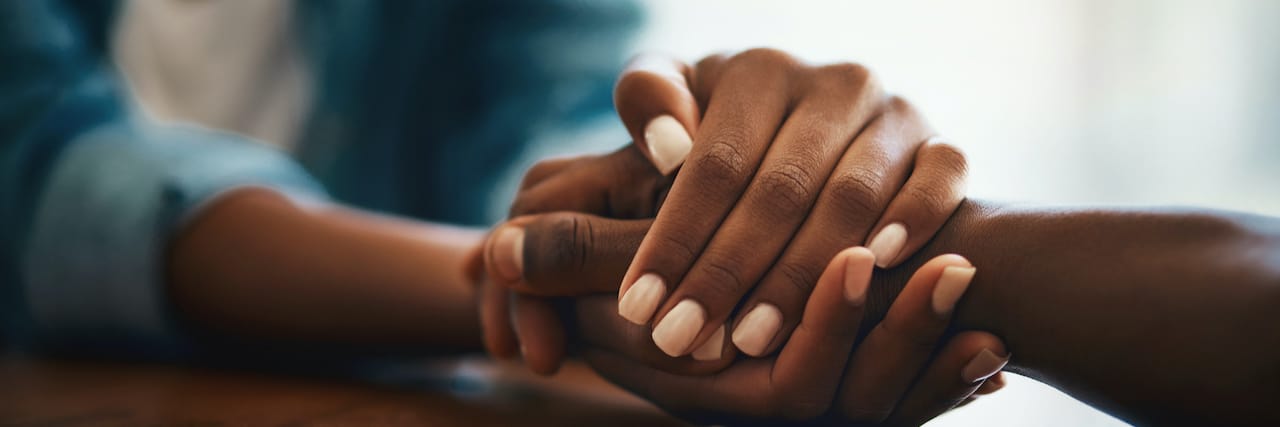A common misconception of post-traumatic stress disorder (PTSD) in the Black community is that Black women are strong enough to withstand (without support) any trauma that comes our way. We are bombarded with racist macro and micro aggressions, racial trauma, sexual violence, community violence, inadequate mental healthcare and so much more. We are told we are the “Strong Black Woman,” and we are immune to mental disorders. We are just expected to be resilient. That mental illness is a white person’s problem. That white people are weaker and therefore need outside help. This is not true. Black women need help too. We are experiencing trauma and are demonstrating signs of PTSD. My fellow sisters are suffering in silence and there seems to be no relief and support in sight.
I have experienced a significant amount of trauma in my life and to no end people in my community are confused that I have mental illness. I cannot begin to count how often other Black women have said to me “girl there is nothing wrong with you, you are just stressed out” (like that is OK). The reality is yes, I am both resilient and struggling with PTSD. I am having a normal response to the stress of trauma. I am having flashbacks, body memories, headaches, body aches, fear of others and many other symptoms that are all classic symptoms of PTSD.
I am not OK. I cannot magically get over what happened and move on with my life.
“The most disrespected woman in America, is the black woman. The most unprotected person in America is the black woman. The most neglected person in America, is the black woman.”
— Malcolm X
Black women are viewed as the backbone of the Black community, and no one wants to think that maybe we are impacted by what we witness and experience. If we are impacted that means we need caretaking. That means someone else will need to step up and lead.
The reasons why resiliency as a result of trauma is perpetuated in the Black community is because:
Reason 1: Black women are seen as the matriarchs of the community.
It is hard to see your biggest support need help. If they are wounded, what does that say about the fate of our community?
Reason 2: Black women are seen as head of the household.
There is no space for women to take time for themselves and slow down and get care. There are often not another parent and limited resources financial and otherwise to devote to mom. The share of Black households with single female head of household in 2019 was 60.2%, greater than any other group.
Reason 3: Black women only see God as the sustainer and healer.
This poll shined a spotlight on the deep religious influence spirituality has in our lives:
“A survey conducted by the Kaiser Foundation and the Washington Post revealed that African-American women are among the most religious groups of people in the nation… About 87 percent of black women say they rely on their faith to help them tread troubled waters. Scholars of religion argue that during
tumultuous times, black folks lean on their faith for spiritual support.”
Black women are pushed to seek solutions to problems in church, even though the church and pastors are ill equipped to provide proper support. The church also holds a dim view of taking issues out of the family and out of the hands of God.
Reason 4: Inadequate access to culturally competent and affordable care.
When Black women look for support, they often find that there are no service providers that look like them and that they can relate to. Many therapists do not take insurance or have limited health insurance offerings. Not to mention of all the Black people who do not have health insurance. Blacks Americans are 12% uninsured, compared to 9% of white Americans who are uninsured.
What can Black women do?
- Speak the truth about your circumstances
- Do not remain silent with your pain and opt for resiliency instead
- Value being mentally healthy
- Journal about your emotions and express your pain privately to your pages
- Ask for help from those who can help you
- Educate yourself (read books, watch podcast, research online, join support groups)
- Lean on other women who are more ahead of you in their healing journey
- Pray for the higher power to send your way the help you need
- Seek help from a professional who can support you in healing
- Surround yourself with people who love you unconditionally
- Limit association with those who want to use you up and offer nothing in return
Black women being told repeatedly that they should be resilient and should hide their pain is why I work to educate Black women about mental illness and to normalize seeking help. I train community groups and write for The Mighty to share my story and encourage others to seek support. The reality is we cannot do this alone.
The misconception that Black women are not in need of support and care is false. It is an effort to keep us trapped in trauma. We deserve help like everyone else.
Black women are Mighty Strong even if that requires help to get there.
Getty image by PeopleImages

